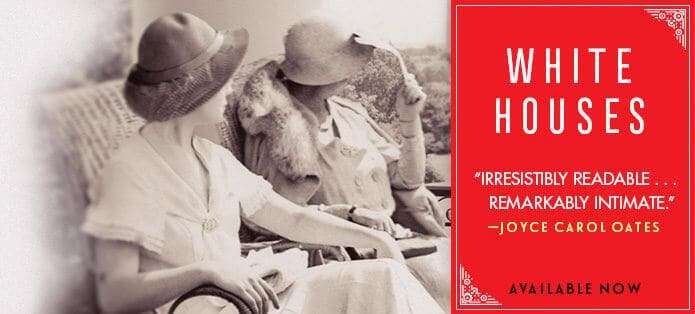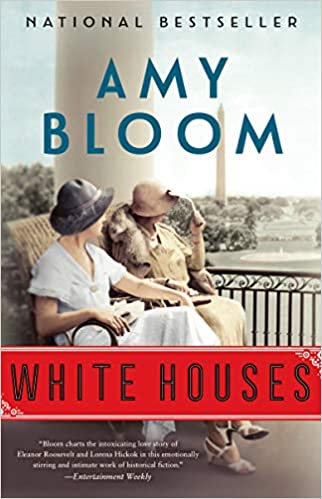White Houses by Amy Bloom
One of the highlights of my year, thus far, was interviewing bestselling author, Amy Bloom about her new book, White Houses. Released in time for Valentine’s Day (February 13, Penguin Random House) with rave reviews from the likes of Joyce Carol Oates, White Houses is a love story about a complex affair steeped in our history between a First Lady and a woman— a journalist— that spanned more than three decades.
 Bloom’s novel is based on the real-life love affair between Eleanor Roosevelt and Lorena “Hick” Hickok. This story about to women in love is wrought with obvious challenges given the times— when same-sex relationships and extramarital affairs were taboo. Add substantial class differences between the women and therein lies a story with uncompromising complexities that threaten to permeate this obvious connection at every turn. Despite their innate differences, Bloom presents Eleanor and Hick in a story that points not to the differences between, but to the real possibilities that abound when two people let go and let love steer the course of their lives.
Bloom’s novel is based on the real-life love affair between Eleanor Roosevelt and Lorena “Hick” Hickok. This story about to women in love is wrought with obvious challenges given the times— when same-sex relationships and extramarital affairs were taboo. Add substantial class differences between the women and therein lies a story with uncompromising complexities that threaten to permeate this obvious connection at every turn. Despite their innate differences, Bloom presents Eleanor and Hick in a story that points not to the differences between, but to the real possibilities that abound when two people let go and let love steer the course of their lives.
But they were different— very different.
Where Eleanor was charismatic and a social butterfly championing the causes of the forgotten, Hick— who covered the abduction of the Lindbergh baby in 1932— was more reserved, what we would now call a “homebody.” The affair was the most open secret of its time, even FDR turned a blind eye to this burgeoning romance as it gave him a pass to continue his own storied affairs with so little as a shrug from the wife.
The larger tale of this romance was not recognized publicly until much later in a series of letters Bloom used for research. Eleanor, in placing country above all else, remained married to the philandering POTUS and continued to grow her on-again, off-again romance with Hick away from the public eye. She was devoted to FDR in marriage because it was for the good of the country, but her heart remained with Hick. Although Hick had other lovers when she and Eleanor were forced to part, none moved her as much. No matter time and space says Hick, “We were the little girls we’d never been,” hoping that, like their love, what never was can endure.
Buy this Book!
Amazon



